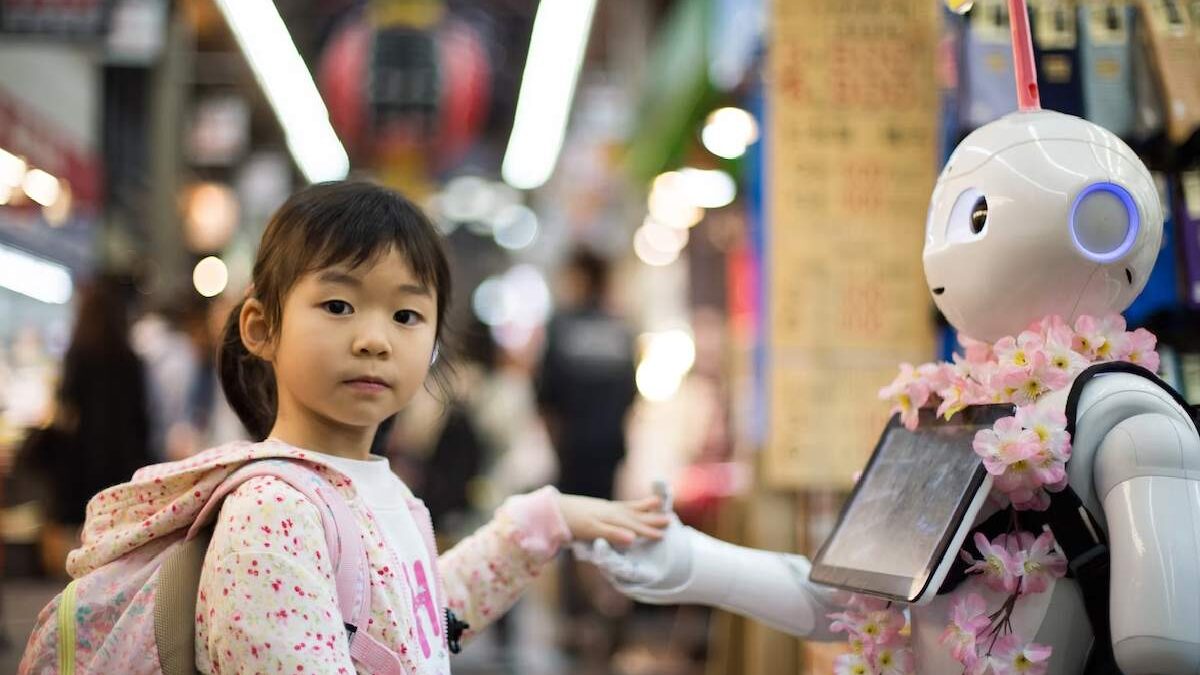A Brief History of Artificial Intelligence – Although the first historical references date back to the 1930s with Alan Turing, considered the father of artificial intelligence, the starting point is the year 1950, when Turing published an article entitled “Computing machinery and intelligence”. In Mind magazine, where the question was asked: can machines think? And he proposed a method to determine if a machine can think. The theoretical foundations of AI are found in the experiment he offers in said article, which came to be called the Turing Test. By surpassing a machine, it could be considered that he could pass for a human in blind talk. This test is still valid and is subject to ongoing studies and research.
However, many researchers and historians consider that the starting point of modern artificial intelligence was the year 1956, when the fathers of current artificial intelligence, John McCarty, Marvin Minsky and Claude Shannon, formally coined the term during the Dartmouth conference as: “the science and ingenuity of making intelligent machines, brilliant computing programs.” The meeting was funded by the Rockefeller Foundation and was called the Dartmouth Summer Research Project on Artificial Intelligence.
The last five years have been the expansion of artificial intelligence (AI) in sectors where until now it had not reached. Yoshua Bengio -one of the most prestigious researchers in the world in the field of artificial intelligence- in his Deep Learning article published in the Scientific American magazine, gives the starting date for the AI explosion in 2012, where the first commercial products that understood speech -as in the case of Google Now- and later applications that made it possible to identify the content of an image, as Google Photos incorporates today.
1997
IBM’s Deep Blue supercomputer beat world chess champion Gari Kasparov in 1997, after a previous failure in 1996 where Kasparov won. The year 1997 considered some historians of AI as the turning point where artificial intelligence began to heard outside of academic and research fields.
However, it was in the second decade of the 21st century when impact events began to appear to take AI to the takeoff point where it is at the moment.
2011
In February 2011, IBM’s Watson supercomputer -the cognitive computer model, as its creator IBM calls it- won the United States television contest Jeopardy!, in which different questions and issues of all kinds, cultures and knowledge to the two best contestants on the show, Brad Rutter and Ken Jennings.
Watson is a computer capable of learning as it works and accumulates information and can interact with human language in a natural language. Watson learns from interactions with the user.
The Watson cognitive computer is available and accessible from the cloud and has customers in many countries worldwide; in Spain, CaixaBank and Repsol work with Watson.
2011-2014
Another significant milestone Apple’s presentation of the Siri virtual assistant integrated into the iPhone 4S mobile phone in 2011, where the first machine learning experiences and the first hints of deep learning began.
2012 considered the pivotal year of the second generation of artificial intelligence, with the launch of virtual assistants supported AI with deep learning algorithms. In June 2012, Google introduced its virtual assistant, Google Now, and in April 2014, Microsoft introduced its virtual assistant, Cortana.
2016
On March 9, 2016, Google’s Alpha Go artificial intelligence software faced off against South Korean Se-Dol, the world champion of Go – an age-old game of highly complex strategy – in a five-game match. Alpha Go won the first three games fairly, and only in the last fifth game did Se-Dol win, thanks to an early move he made that proved the machine poorly trained to deal with unexpected situations.
2017
The Artificial Intelligence Libratus algorithm developed by Carnegie Mellon University beat four of the best professional poker players in a US Casino. The game took place in January-February 2017 over 20 days in a poker tournament with sessions of 11 hours a day at the Rivers Casino in Pittsburgh (United States) within the Brains vs Artificial Intelligence (Brains vs Artificial Intelligence). The chosen game mode was heads-up, pitting the machine against the four professional players, and Alpha Go won by an overwhelming majority.
2018
Artificial Intelligence established in important sectors of the productive fabric, such as the automotive industry, producing relevant advances in autonomous driving by Tesla or Audi, among others.
2019
The use of AI-based solutions is intensified by other industries, such as Tourism, Mobility or Insurance, using image recognition algorithms and predictive models on driver behaviour to assess the probability of suffering an accident.
2020-2021
The pandemic also favours the advances of Artificial Intelligence in the field of Health, using automated thermal sensors or applying Big Data tools for the early detection of zero patients and control sources of contagion.
On the other hand, the “Low Code” routine is growing, a technology that allows users without technical training to intuitively develop simple applications that take advantage of artificial intelligence and whose estimated increase in use during 2021 will reach 30%.
2022-2024
The use of IoT and voice-controlled devices will increase, not only due to the more excellent entry of voice assistants from Google, Amazon or Apple in the domestic sphere but also due to the expected growth in their implementation in offices and work areas.
It estimated that Artificial Intelligence will generate more than 300 billion dollars of annual business throughout 2024.

